Thursday, March 1, 2012
LESSONS FROM MOTHER NATURE: THE ANT PHILOSOPHY
The following valuable lessons from Mother Nature have been derived from the teachings of master coach Jim Rohn, many many years ago, when I had been invited to attend one of his live seminars in Singapore, in conjunction with the National Achievers' Congress.
All of us tend to have the natural propensity to look up to business tycoons and industrial magnates for lessons on how to be successful and get rich. We are eager to learn the secrets of their business and financial success.
But we forget that sometimes the best lessons in life come from Mother Nature which happens to be around us longer than we have. Now, that’s a good lesson to remember!
Take ants for instance. Would you believe that those tiny creatures can teach us how to be successful in leading a better and richer life?
Master coach Jim Rohn had identified four key lessons from the group behavior of ants that can help us to do so. He called them, the 'Ant Philosophy'.
Philosophy #1: Ants never quit.
When I was a young boy growing up in a Malaysian kampong, I was often fascinated by ants. While playing with them, I had observed that, when they were on the trail for food, they didn't let any obstacle stand in their way, for example, putting a stick or a stone deliberately across their chosen path.
They would confront the obstacle, and walk around it, over it, through it or under it until they had attained their desired outcome.
Interestingly, they will always keep looking for a way out when blocked.
We should all learn to be like that. There will always be obstacles in our lives. The real challenge is to keep trying, keep pushing, and keep searching for alternative routes to get to our life goals.
British prime minister during World War II, Winston Churchill, probably paraphrased the ant’s mindset best when he offered this priceless advice:
“Never give up. Never, never give up!”
Lesson Learned:
Never quit looking for a way to get where you are planning to go. The code here is “Be Persistent” and/or “Don’t ever give up”.
As a prolific inventor, Thomas Edison went through numerous unsuccessful attempts at inventing the light bulb. When a reporter asked, "How did it feel to fail so many times?"
Edison replied, "I didn’t fail, but found many ways to improve my invention."
The story of British inventor-entrepreneur Sir James Dyson and his dual cyclone-powered bagless vacuum clearner is a good business example. He had in fact spent over 15 years working in the cellar before finally launching the product in 1993, which became the country's best seller within two years.
Wow! What a valuable lesson in sheer persistence and unwavering perseverance!
"Our greatest glory is not, in never falling, but in rising every time we fall."
~ Confucius;
"Effort only fully releases its reward after a person refuses to quit."
~ Napoleon Hill, author of 'Think and Grow Rich', and a pioneer of the personal development genre;
Philosophy #2: Ants think winter all summer long.
Things are easy during the summer time. It’s always warm, but it is not going to last. Ants instinctively understand this, and so they gather their winter food in the middle of summer, when resources are readily available. They quickly gather and diligently store food for the difficult times when winter comes and food is scarce.
Lesson Learned:
The scout's motto, 'Be Prepared', is the code here.
Life won’t be a smooth ride all the time. In fact, it's a roller coaster. When troubles come, don’t be caught by surprise. Plan for contingencies, and be prepared at all times.
The biblical story of Noah's Ark is a good example. My own single most powerful takeaway from the story is pretty straight-forward: Plan ahead. It wasn't raining when Noah built the Ark.
The Royal Dutch Shell Company's pioneering and successful application of scenario projection in long-range business planning before the Middle East oil crisis of the mid-1970's was a great business example of strategic preparedness.
The oil embargo caught most oil companies by surprise, but Shell had already considered the impact of an increase in oil price as a possible future scenario, and thought of the actions they should take if it happened. By practicing this scenario projection, they managed to avoid the worst shocks.
Shell even emerged after the oil crisis as the strongest player in the field.
Philosophy #3: Ants think summer all winter.
When winter descends on a colony of ants, they go underground waiting eagerly for the sun to shine above, and when it does, they are immediately back out and about. They seem to have an in-built optimism, and know that the lean times won’t last forever.
As a team-building insect, you can almost imagine them encouraging one another as they anticipate the end of winter.
Lesson Learned:
When we find ourselves in the midst of adversity, we need to remind ourselves that this season of our life will pass away.
Just stay positive, and hang in there, because the storms in our lives are not there to stay. In reality, no matter the storm, there is always a rainbow waiting. Be of good cheer, and it will soon pass away.
When Steve Jobs got played out by John Scully, and eventually got kicked out of the Apple company he had co-founded, it was really devastating for him. But something slowly began to dawn on him - he still loved what he did.
The turn of events at Apple had not changed that one bit. He had been rejected, but he was still in love, and so he decided to start over. He started a company called Next, another company named Pixar (and also fell in love with an amazing woman, who eventually became his wife).
Pixar went on to create the world's first computer-animated movie, 'Toy Story'. In a remarkable turn of events, Apple bought Next , and Steve Jobs returned to Apple, and the technology he had developed at Next became the strategic heart of Apple's renaissance. The rest was history.
Philosophy #4: Ants do all they possibly can.
How much food does ants gather in summer? All that they possibly can!
Now that’s a great work ethic to embrace. Do all you can!
One ant doesn’t worry about how much food another ant is gathering. It does not sit back and wonder why it should have to work so hard. Nor does it complain about the poor pay! Ants just do their bit, as nature has intended. They gather all the food they can out there.
Success and happiness are usually the result of performing at your best: doing all you possibly can.
If you look around you, you’ll find that successful people are those who just do all they possibly can.
Average people look forward to getting off. Successful people look forward to getting on with it. The doing and activity is the key here.
Lesson Learned:
Do all you can. How much should you do in your life? As much as you possibly can! We’re all governed by our thoughts, our evaluations, what we have decided, and how we feel.
Don’t ever stop, and become stagnant in life. As my good friend, Dilip Mukerjea often puts it, "the status quo has no status!"
Keep learning and growing, and strive to reach for the stars.
I remember vividly the Apollo 13 incident, following an oxygen tank explosion in space, during the early seventies very well, as I had also watched the movie.
Mission Control in Houston and the three-astronaut crew on board the ill-fated space craft did all they possibly could to deal with the numerous technical problems arising, and to salvage a safe return to earth.
Eventually, with considerable ingenuity under extreme pressures, they managed to use the Lunar Module, instead of the Command Module, to complete a successful earth-bound splashdown in the South Pacific.
On a larger picture, I also remember the story about Singapore, when she got kicked out of Malaysia in 1965, and then the British forces pulled out suddenly in the seventies.
The then Prime Minister Lee Kuan Yew and his cabinet ministerial stalwarts [Keng Swee, Rajaratnam, Sui Sen, among others] just did all they possibly could, against all dicey odds, to turn the Jurong swamplands into industrial estates, set up the Economic Development Board (EDB) for their road warriors to roam the globe to attact foreign investors to come to Singapore to set up factories, and finally, build the armed forces from scratch [fortunately, with Israel's help, as the neighbouring countries had turned down Singapore's request for assistance!] to defend her sovereignty. The rest was history.
For summing up in a nut shell, I recommend folks to follow the four philosophies of Jim Rohn as embodied in the ‘Ant Philosophy’ – and you’ll see the difference in your life.
- Don’t quit.
- Look ahead.
- Stay positive.
- And do all you can.
And there’s just one more lesson to learn from ants.
Did you know that an ant can carry objects up to 20 times their own weight?
Maybe we are like that too. We can carry burdens on our shoulders and manage workloads that are far, far heavier than we’d imagine. Next time something’s bothering you and weighing you down, and you feel you just can’t carry on, don’t fret.
Think of the little bug.
Subscribe to:
Post Comments (Atom)

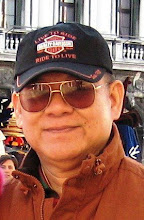


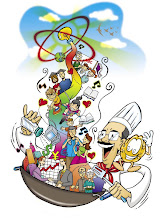
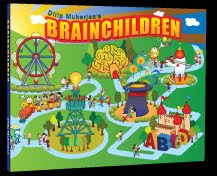



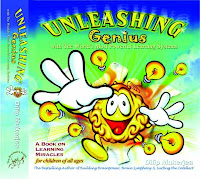
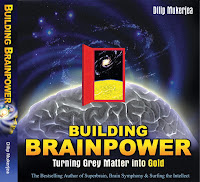
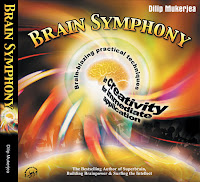





No comments:
Post a Comment